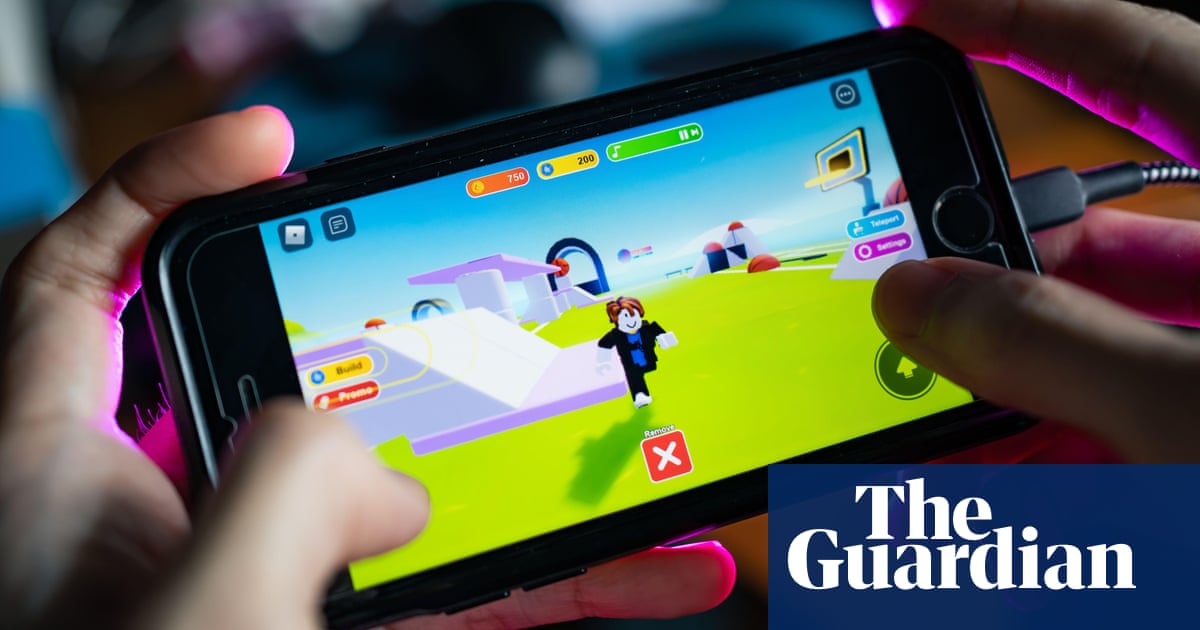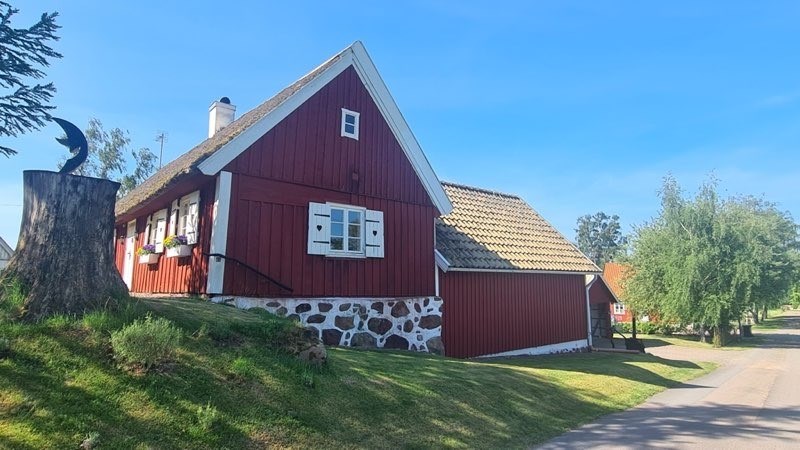Detta inlägg post publicerades ursprungligen på denna sida this site ;

David, a 46-year-old father from Calgary, Canada, initially did not see a problem when his 10-year-old son started to play on Roblox, the platform of user-generated games and virtual environments that has exploded in popularity in recent years, particularly among younger gamers.
“We saw it as a way for him to maintain a level of social interaction during the Covid lockdowns,” David said, assuming his son was using the platform’s chat function only to speak with friends he knew personally.
After a while, his parents found him speaking to someone in his room in the middle of the night.
“We discovered that a man from India had approached him on Roblox and coached him to bypass our internet security controls,” David said. “This person then persuaded my son to take compromising nude images and videos of himself and send them via our Google Mini.
“It was hard to get to the root of why my son did that. I think he was lonely, thought this was a genuine friend, and we think he was given gifts on Roblox that made him feel special. It was really every parent’s worst nightmare.”
David was among parents from around the world who shared with the Guardian that their children, often of primary school age, had been profoundly negatively affected by gaming on Roblox or had come to serious harm. Many also confirmed the findings of a report last year that claimed Roblox was exposing children to grooming, pornography, violent content and abusive speech.
Although some parents said Roblox had been a creative outlet for their children, brought them joy or even improved some of their skills, such as communication and spelling, the vast majority of parents who got in touch expressed severe concerns. These were mostly about staggering levels of addiction they had observed in their children, but also about instances of traumatising content in games their children could access despite parental controls, grooming, emotional blackmail, bullying, extreme political imagery such as avatars in Nazi uniforms, and strangers talking inappropriately to their children on the platform.
“Deeply disturbing” research by the digital behaviour experts Revealing Reality found children as young as five were able to communicate with adults while playing games on the platform.
Roblox acknowledged in response that children playing on the platform may be exposed to harmful content and “bad actors”, an issue the company claimed it was working hard to fix but that required industry-wide collaboration and government intervention. While the company said it “deeply sympathise[d]” with parents whose children have had negative experiences on Roblox, it did not engage with parental concerns about child users experiencing severe gaming addiction.
A freshly announced series of additional safety tools, aimed at giving greater flexibility to parents to manage their children’s activity on the site, failed to convince many of the parents the Guardian spoke to.
“I don’t think the changes will address my concerns,” said Emily, a mother from Hemel Hempstead.
“The new features are helpful but won’t stop the children being able to access inappropriate or scary content. People are allowed to choose the age ratings of a game they’ve created and they will not always be appropriate or accurate. I don’t think Roblox does enough to guarantee the safety of younger children on the platform.”
Her seven-year-old daughter, she said, was having trouble sleeping as a Roblox game had taken her to a room with an avatar that was introduced as “your dad” and then shot dead.
Despite Roblox claiming it had introduced “new easy-to-use ‘remote management’ parental controls”, parents said they had found it extremely difficult to navigate the parental control settings, and said it would take hours to regularly review their child’s activity. It was also impossible to tell, many stressed, who was really behind a user name.
“Although Roblox do monitor the type of language being used, such as profanity, there is no real way of policing the age of players and some users talk in code,” said a mother from Rhondda Cynon Taff, Wales, whose autistic seven-year-old son plays on Roblox regularly.
The company stressed that it had made it a default setting last year that under 13s can no longer directly message others on Roblox outside of games or experiences.
Roblox admitted however that it was struggling to verify the age of users, saying that “age verification for users under the age of 13 remains a wider industry challenge”.
Nelly*, a mother from Dublin in her 40s, said her nine-year-old daughter had just finished a course of play therapy to process sexual content she saw on Roblox that triggered panic attacks.
“I thought it was OK to play,” she said. “I also didn’t allow her to befriend strangers. I thought this was enough but it wasn’t.
“There was an area that she went into and people wore underwear and someone came in and lay down on her.”
Many parents felt Roblox was exploiting children’s “underdeveloped impulse control”, as one father put it, giving them constant nudges to gamble and stay on the platform, and prompting many children to lose interest in other activities in the real world.
Jenna, from Birmingham, said two months after her children had started playing Roblox, their “whole lives [had] been taken over” by the platform, echoing the remarks of scores of other parents.
“I feel like I’m living with two addicts,” she said. “If they aren’t playing, they want to watch videos about it … When they get told to come off it’s like you’re cutting them off from their last fix – shouting, arguments, sometimes pure rage.”
Peter, 51, an artist from London and father of three boys, said his 14-year-old son had become so addicted to Roblox and his devices generally that he had become violent, and had on one occasion broken a window with his fist when the game had been switched off.
“The people who run Roblox don’t give a shit that parents can’t control the game. We’ve tried everything and nothing has worked. We’re now in therapy,” he said.
Roblox’s chief executive has advised parents to keep their kids off the platform if they feel worried. Maria, a mother of three from Berkshire, was among many who highlighted, however, that it was difficult for parents to do so as children felt socially excluded when they were offline, and that the platform’s monetisation elements – unlocking higher game levels and personalisation features – had become status symbols among children.
Roblox said in a statement: “We deeply sympathise with the parents who described theirs and their kids’ negative experiences on Roblox. This is not what we strive for, and not reflective of the civil online space we want to build for everyone.
“Tens of millions of people have a positive, enriching and safe experience on Roblox every day, in a supportive environment that promotes connecting with friends, learning and developing vital STEM skills. While we recognise that no safety system operating at scale is perfect, we work tirelessly to enhance and improve our systems, processes and policies.”
*Name has been changed
The Guardian Tech RSS
https://www.theguardian.com/technology/2025/apr/14/parents-describe-children-roblox-problems

